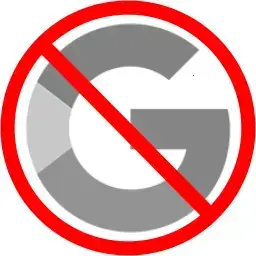Long story short: Everyone should consider downloading NeoStumbler on their phones and help collect degoogled geolocation data from the places they travel to.
Degoogled geolocation data?!
A big problem with degoogling is positioning services. Whenever your device doesn’t have a GPS signal but wants to know your position, it collects information about the wifi, cellular, and bluetooth networks around you. It then looks this up against a database of networks and their location, and returns to you your approximate position.
This has traditionally been crowd-sourced by Google for a closed database for them to use and abuse. Mozilla created and abandoned their own service a while back, as they tend to do. Their data was not anonymous enough for it to live on in open source, and for a while there was no real open source option out there. All location services would pretty much depend on Google. Thankfully, this is not the case any more.
Enter beaconDB!
A proper open source alternative has finally emerged in the form of beacondb (@beacondb@mapstodon.space), which currently contains location data for more than 75 million wifi networks and almost 4 million cellular towers, most of which in Europe and the US. This database allows degoogled devices to find their location in the world without relying on a Google service. It is still in its early days, but some open systems already use it by default.
How can you help?
Contributing to beaconDB is incredibly easy. The tl;dr on top of this post summarizes it, but here’s a more detailed overview:
- Install the open source app NeoStumbler
- Open the app and set it up. It’s a good idea to take a look at the settings. I have enabled movement detection (helps save battery on most devices) and passive data collection. I also enabled an option to send reports with less metadata, further increasing privacy.
- Press “play” in the app. You can also add a “wireless scanning” button to the sliding drawer menu in Android to make this option more accessible. I generally keep scanning on at all times as I don’t find it to drain the battery much, but of course it’s mostly useful when moving around in new areas.
- Walk around, live your life.
And, of course: Let people know about it! Contributions from people outside of Europe and the US would be particularly welcome, but it’s the early stages of the project and contributions are needed everywhere. Also feel free to cross-post (or boost!) this to anywhere you’d see fit.
Since the end of June I have collected information about more than 150 000 wifi networks and more than 10 000 cellular networks. It’s fun to keep track of how many new networks I’ve passed by at the end of the day.
Please join in! :)
Can anyone with more knowledge than me let me know if this is legit?
I’m more than willing to help a project like this, but I’d love to get some knowledgeable opinions first if anyone knows anything about this kind of thing.
Valid question. I’ll tell you my story first, then some external validation second.
I discovered the problem with Google and location services a few years ago when I was testing out Ubuntu Touch for the first time. My phone often spent a long time to find GPS antennas, and (like most devices) it would usually not find anything at all while indoors. So in the end one of the major hurdles of switching to Linux on my phone - other than banking apps - was the lack of location services. This was in the period after Mozilla shut down their project, so while I wanted to start contributing to an alternative at the time there was really nowhere to go.
Fast forward to this year, and I am using /e/OS from @murena@mastodon.social on my phone. In some context or another (I don’t remember exactly) I hear that they are planning to switch to @beacondb@mapstodon.space for their location service, so I check it out and learn pretty much what I posted above.
As for external validation: If you happen to be a Fedora user—other Linux distros might work as well—you can open the file
/etc/geoclue/geoclue.confand look under the[]heading. While it’s not enabled by default yet, you’ll find the following inside the config file:# To use the BeaconDB geolocation service, uncomment this URL. # url=https://api.beacondb.net/v1/geolocateWhich is, I guess, a pretty solid way to verify that it’s legit. There’s also the fact that big players like Ubuntu have embraced beaconDB.
As for NeoStumbler, you’ll see it recommended directly on the web site of beaconDB. If you trust one you can trust the other—it’s pretty much two sides of the same project.
When it comes to the collection of this kind of data on a more general level, it is nothing new: Android devices send geopositioning data to Google by default. Back when Mozilla had their service it was connected to Firefox on Android, which asked users whether they wanted to contribute. Compared to those two, beaconDB and NeoStumbler are more diligent to remove information that could make it possible to identify individual users. You can also choose to only enable it for example while travelling, so that you don’t collect data close to any locations that can be associated with yourself. I’d be happy to hear what others have to say about this though. I always disabled location data sharing back when I used Google Android.
Thank you!


